Complete & Reliable Automotive Service & Repair
At Grease Monkey Garage South, you and your confidence are the most important piece of the puzzle. We provide a wide range of automotive repair services for your convenience. And remember, we want to keep you in our loyal customer family. If you don’t see the service you’re looking for, just ask!
Engine Auto Service in Las Vegas and Henderson
Your vehicle’s engine is the heart of your car, and it’s essential to keep it in top condition to ensure maximum performance and longevity. Regular engine auto service is the key to achieving this, and the team at Grease Monkey Garage South is equipped with the latest diagnostic tools and technology to provide the best engine repair and maintenance services in the Las Vegas and Henderson area. When you bring your vehicle to our repair shop for engine service, you can expect friendly and professional service.
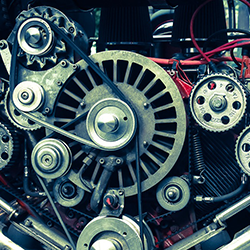
- Engine Repair
- Engine Replacement
- Engine Performance Check
- Belt Replacement
- Hose Replacement
- Cooling System Repair
- Radiator Repair & Replacement
- Water Pump Repair & Replacement
- Drivability Diagnostics & Repair
- Fuel Injection Repair & Service
- Fuel System Repair & Maintenance
- Ignition System Repair & Maintenance
Auto Body Repair in Las Vegas and Henderson
Maintaining the appearance and structural integrity of your vehicle is essential for its longevity and safety on the road. At Grease Monkey Garage South, we pride ourselves on delivering top-notch auto body repair services. Our skilled technicians specialize in collision repair, dent removal, fender repair, and framework. From precise dent repairs to quality painting and re-painting, we offer comprehensive solutions to keep your vehicle looking and performing at its best.
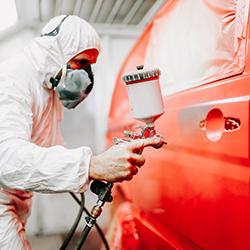
- Collision Repair
- Accept All Insurance
- Custom Work
- Dent Repair/Removal
- Fender Repair
- Framework
- Quality Painting and Re-Painting
Maintenance & Auto Service in Las Vegas and Henderson
Maintaining your vehicle regularly is one of the most important things you can do to ensure its longevity and safety on the road. Proper maintenance not only ensures that your vehicle performs at its best, but it also helps to prevent costly repairs down the road. At Grease Monkey Garage South, we take pride in our work and offer a variety of maintenance services to keep your car running smoothly. From tune ups to engine diagnostics, we have you covered.
- Factory Scheduled Maintenance
- 30k/60k/90k/120k Mile Services
- Computer Diagnostics
- Oil Changes
- Tune Ups
- Filter Replacements
- Safety & Emissions Inspections
- Windshield Wiper Blades
- Fluid Services
- Trip Inspections
- Maintenance Inspections
- Check Engine Light Diagnostic
- Brake Service
- Shocks & Struts Repair
- Chassis & Suspension Repair
- Suspension & Steering Repair
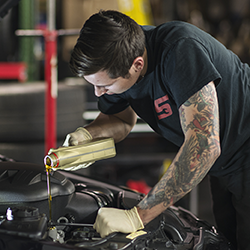
Heating & Air Conditioner Repair in Las Vegas and Henderson
Your vehicle’s heating and air conditioning system is an essential part of your driving experience. Grease Monkey Garage South focuses on repairing and maintaining all types of heating and air conditioning systems for your vehicle. We understand the importance of keeping your vehicle comfortable, especially during extreme weather conditions. That’s why we offer a comprehensive range of services to keep your heating and air conditioning system running efficiently year-round.
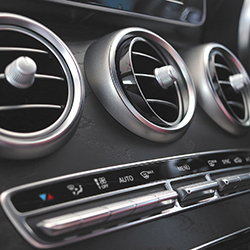
- Heating & Cooling System Diagnostics
- Auto Air Conditioning Repair & Service
- Heating System Repair & Service
- Belt Repair & Replacement
- Compressor Repair & Replacement
Auto Electrical Service in Las Vegas and Henderson
If your car’s electrical system is acting up, Grease Monkey Garage South has the diagnostic tools and expertise to identify the issue quickly. Whether you’re experiencing a minor electrical issue or a major electrical problem, our team of experienced technicians can diagnose and repair any electrical problem your vehicle may have. From battery testing and replacement to electrical diagnostics, we use state-of-the-art equipment and the latest diagnostic tools to ensure your vehicle is diagnosed and repaired efficiently.
- Electrical System Diagnostics & Repair
- Alternator Repair & Replacement
- Starter Repair & Replacement
- Windshield Wiper Repair
- Power Lock Repair
- Power Antenna Repair
- Power Steering Repair
- Power Window Repair
- Light Repair & Bulb Replacements
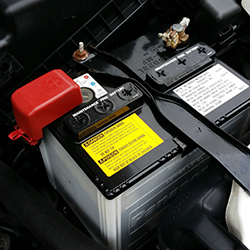
Exhaust Service in Las Vegas and Henderson
Regular exhaust service is an essential aspect of maintaining your vehicle’s performance, fuel efficiency, and overall safety. Visit Grease Monkey Garage South and our team of certified technicians to help ensure that your vehicle’s exhaust system is functioning correctly and efficiently. The exhaust system of your car is responsible for controlling harmful emissions and reducing noise levels while also helping to improve engine performance. A well-maintained exhaust system can help your vehicle is running efficiently and is compliant with state regulations.
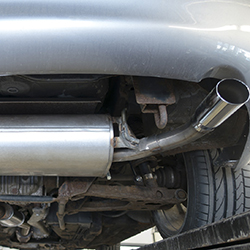
- Exhaust Repair & Replacement
- Muffler Repair & Replacement
- Tailpipe Repair & Replacement
Transmission Service in Las Vegas and Henderson
The transmission is one of the most important components of your vehicle, responsible for transferring power from the engine to the wheels. A well-maintained transmission can improve fuel efficiency, reduce wear and tear on other parts of your vehicle, and extend the life of your car. Regular maintenance can help prevent major transmission problems down the road, visit our friendly and knowledgeable team at Grease Monkey Garage South and we’ll help you keep your vehicle running smoothly for years to come.
- Installation
- Replacement
- Rebuild
- Repair
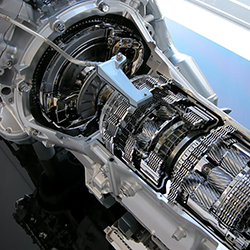
Complete Auto Service in Las Vegas and Henderson
Don’t see your vehicle’s issue here yet? Don’t worry. Our experienced technicians can definitely handle your vehicle’s problem. Contact us via phone, email or in person for more information about the kinds of auto service in Las Vegas and Henderson that we offer. Contact us today!

Services:
- Brakes & Brake Repair
- Oil Changes
- Tires & Tire Repair
- Mufflers & Exhaust
- Check Engine Light
- Belts & Hoses
- And Much More...





